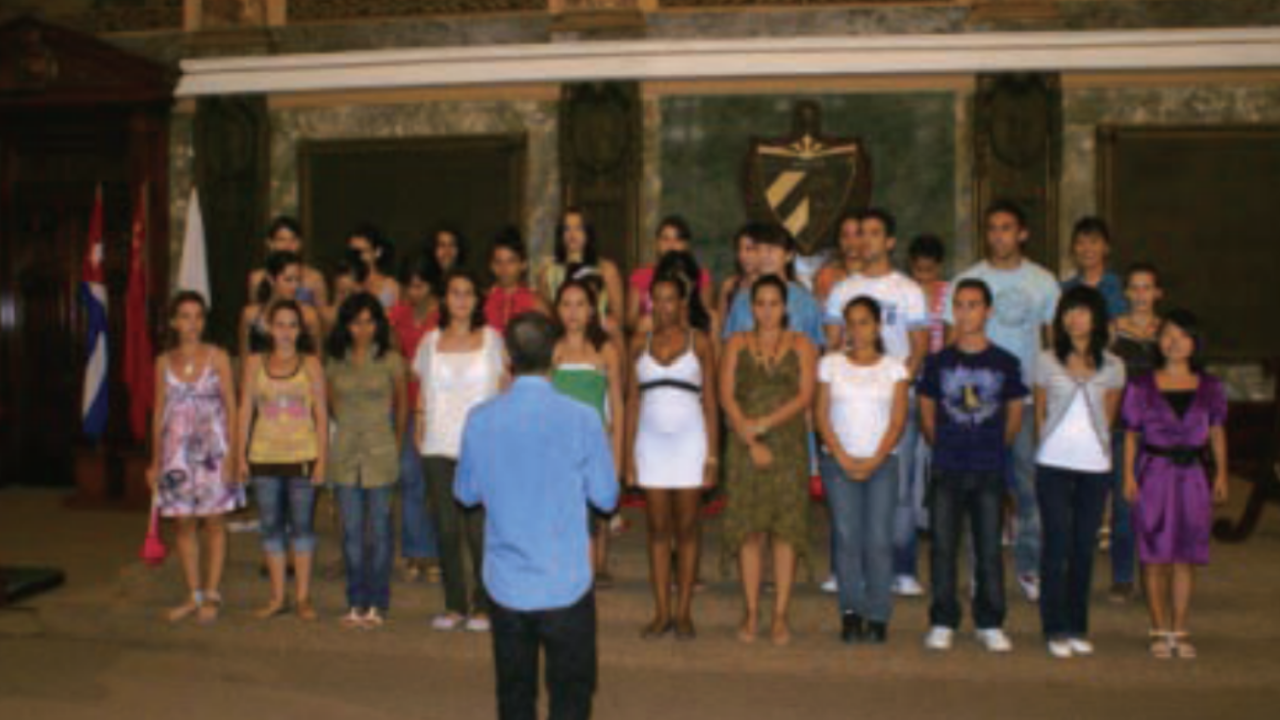Teaching Chinese in Cuba: My Journey in Havana
Aug 24, 2025
By Zong Can – Lecturer at Beijing Language and Culture University
When people think of Cuba, what often comes to mind are Fidel Castro, Che Guevara, Cuban rum and cigars, the legendary women’s volleyball team, or the colorful vintage cars that roam Havana’s streets. For me, Cuba was much more than these iconic images—it was where I spent two unforgettable years teaching Mandarin at the Confucius Institute of the University of Havana (2010–2012).
This is the story of my life in Cuba as a Chinese teacher, where cultural exchange, language learning, and friendship shaped every day of my journey.
First Impressions of Havana
Before arriving, friends warned me: “Be prepared to step back into the 1970s—life is slow and goods are scarce.”
But when I landed in Havana after a 20-hour flight, what I found was far from depressing. The old city was alive with music, laughter, and bright colors. Colonial Spanish courtyards stood alongside street murals, while 1950s American cars—known locally as máquinas—rolled down the streets with Cuban pride.
Walking along the famous seaside promenade Malecón, I saw lovers whispering, fishermen chatting, and families laughing together. Life in Cuba was simple, but full of warmth. I quickly understood why Hemingway once called Havana his “true home” and stayed for 22 years.
A Confucius Institute Full of Passion
At that time, the Confucius Institute in Havana was still young and modest. Our classrooms were small, textbooks were limited, and sometimes even the water and electricity didn’t work. But none of that mattered—students came with boundless enthusiasm.
Classes were always full. Families studied together: grandparents with grandchildren, couples, even parents with their kids. I will never forget Norberto, a 71-year-old grandfather who never missed a class, or Yisel, who traveled five hours every weekend just to attend lessons. Their dedication inspired me every day.
Cuban students’ love for Chinese culture went beyond language. Many earned scholarships to study in China, some even pursuing advanced degrees. Their persistence reminded me that teaching Chinese abroad was not just about grammar or tones—it was about building bridges between people.
Cultural Surprises: From Greetings to Pronunciation
One of my earliest “culture shocks” was the Cuban greeting—the beso (cheek kiss). At first, I felt awkward. In China, physical contact is reserved for close family. But in Cuba, even colleagues or classmates greeted each other this way. Soon I learned to accept it, and eventually even initiated it myself.
Language learning also had its challenges. Spanish speakers often confused Chinese sounds like p and b, or mispronounced cài as gài. Sometimes misunderstandings were funny—like when a fruit seller shouted “un beso” (a kiss), but I thought he meant “un peso” (one peso)! These experiences reminded me to always teach pronunciation with special care.
Shared Expressions, Different Meanings
Language reflects culture. I was fascinated to discover how Cuban Spanish used animal words differently from Chinese. For example, in Cuba calling a young man pollo (chicken) means he is handsome—similar to China’s slang xiǎo xiān ròu (literally “little fresh meat”).
But other terms differ: in Cuba, a “gallina” (hen) means coward, while in Chinese “old hen” carries a sense of maternal love. And the Chinese “old ox spirit” (hardworking and reliable) is expressed in Cuba with the image of a horse. These cultural insights not only amused me, but also helped me teach Chinese in a way that felt natural to my Cuban students.
Looking Back
When my teaching assignment ended in 2012, I felt reluctant to leave. Cuba had become a second home to me. Over the past decade, Havana has changed a lot—the Confucius Institute has moved to Chinatown in Old Havana, with better facilities to welcome even more students. In 2020, China and Cuba signed an agreement to formally introduce Chinese into the Cuban national education system—an exciting milestone.
I hope more Chinese teachers will come to Cuba, and more Cubans will have the chance to study in China. Cultural exchange strengthens friendship, and the bonds between our peoples will only grow deeper.

